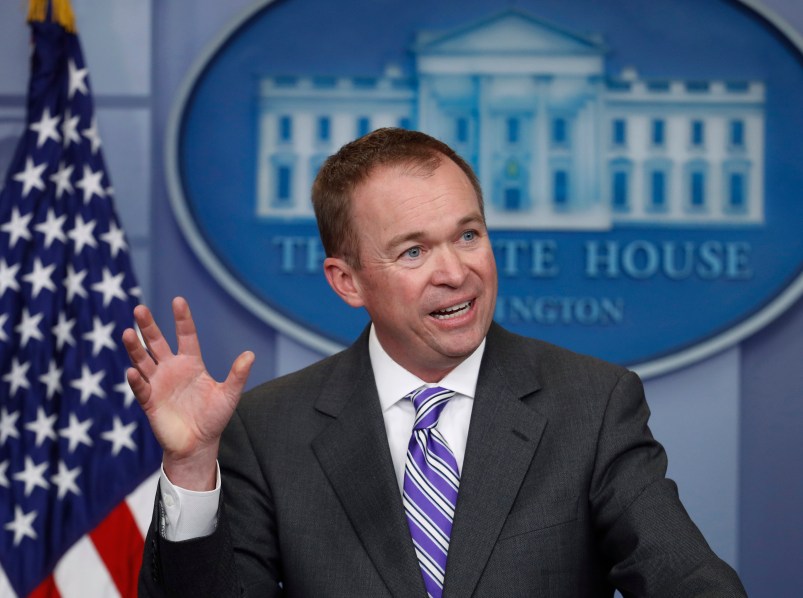Mick Mulvaney was one of the hardest core Tea Partiers and Freedom Caucusers during his time in the House. Part of that was a demand for fiscal austerity and budget cutting during the thinnest years coming out of the Great Recession. Now he’s decided deficits aren’t just okay. They’re positively necessary.
Over the weekend on CNN, Mulvaney said the country needs “new deficits.”
Mulvaney said: “I’ve been very candid about this. We need to have new deficits because of that. We need to have the growth. If we simply look at this as being deficit-neutral, you’re never going to get the type of tax reform and tax reductions that you need to get to sustain 3 percent economic growth.”
There are several levels of this. Most progressives agree that fiscal balance is not the primary goal we should be following. It’s positively harmful when you have anemic economic growth. That’s one reason that the US did significantly better coming out of the Great Recession: it didn’t embrace austerity at quite the level Europe did, though it moved heavily in that direction after the GOP takeover of the House in 2011. And in fairness, Obama himself had some of the fiscal austerity bug.
But the kinds of deficit Mulvaney and the White House are looking to push aren’t Keynesian in nature or efficiently expansionary. They’re huge cuts overwhelmingly going to the already very wealthy. It tells us what we already know: deficit talk from today’s Republicans, certainly from the center of gravity of the party is all talk.






